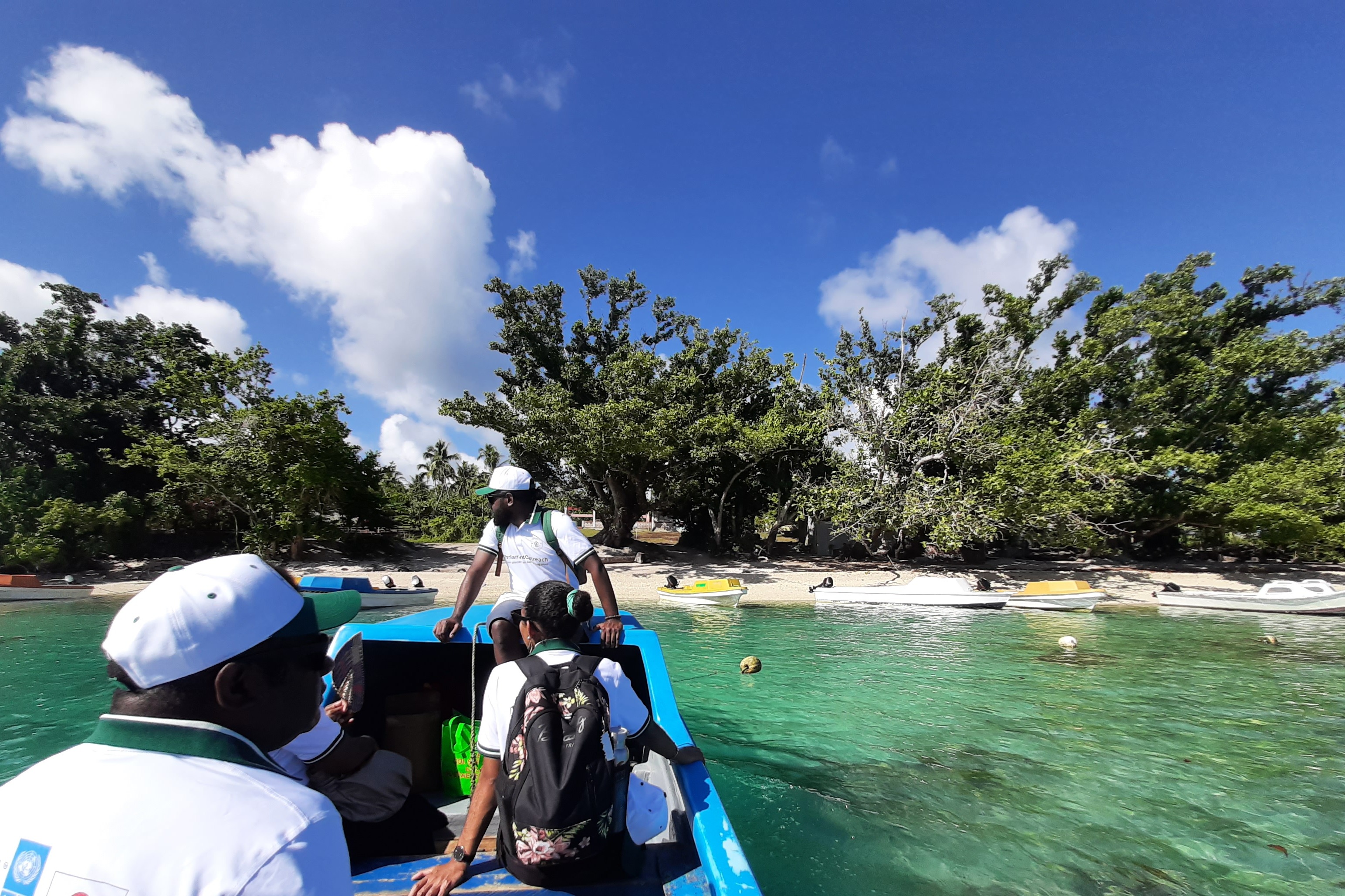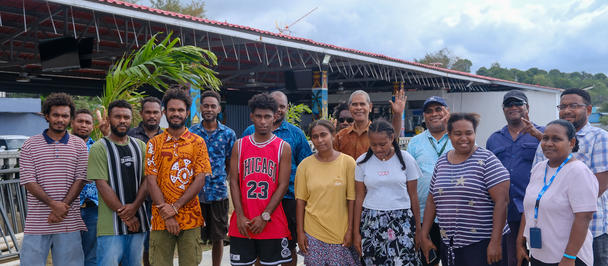Supported by the United Nations Development Programme, Ghana and Switzerland, as well as Vanuatu, are the first countries that have authorized projects as part of Article 6 cooperative approaches for emissions reductions.
Ghana, Vanuatu, and Switzerland launch world’s first projects under new carbon market mechanism set out in Article 6.2 of the Paris Agreement
November 12, 2022

Malo Island, Vanuatu
Sharm El-Sheikh, Egypt – Ghana and Switzerland, as well as Vanuatu, showcased today at COP27 how pioneering voluntary cooperation approaches under Article 6.2 of the Paris Agreement will enable the reduction of greenhouse gas emissions while advancing progress on the Sustainable Development Goals (SDGs) in developing countries.
Beyond emissions reductions, climate mitigation projects can indeed directly or indirectly yield many development benefits – including job creation, access to energy, support to livelihoods and food security, gender empowerment and more. Article 6 of the Paris Agreement acknowledges that countries can pursue voluntary cooperation in the implementation of their Nationally Determined Contributions to allow for higher mitigation ambition and to promote sustainable development.
Ghana presented at a dedicated event at COP27 the first-ever bilaterally authorized project to be implemented under this mechanism. Vanuatu presented the first unilateral authorized project, which will pave the way for implementation. By entering these voluntary cooperation approaches through bilateral agreements with Ghana and Vanuatu, Switzerland will reduce its federal administration’s greenhouse gas emissions by using Internationally Transferrable Mitigation Outcomes (ITMOs) to accelerate the implementation of climate mitigation projects with strong development benefits in developing countries. These ITMOs will not be counted towards Switzerland’s NDC but are complementary and will be cancelled without use to any NDC.
“This initiative is an example of UNDP’s 'future-smart' approach to development, which aims to use innovative financial mechanisms and partnerships with governments and the private sector to empower countries to follow a sustainable development pathway, leaving no one behind,” said Achim Steiner, UNDP Administrator.
The Ghana project will support the training of over thousands of rice farmers – covering nearly 80 percent of Ghana’s rice production – in sustainable agricultural practices, leading to significant methane emission reductions. The intervention will also provide extra income through carbon revenue to farmers for increased resilience and improve efficiency of water use.
“Ghana’s leadership in Africa on carbon finance with the landmark bilateral agreement with Switzerland is something we are proud of. We want to leverage this collaborative approach to crowd in more carbon revenue to accelerate the implementation of our national climate plan for the benefits of many communities”, said Dr. Kwaku Afriyie, Minister of Environment, Science, Technology & Innovation (MESTI) of Ghana.
In Vanuatu, the selected project will enable the country’s population currently without electricity to have access to reliable, affordable electricity through renewable energy.
“This is a great opportunity for Vanuatu as a small Island Developing State (SIDS) to explore and be part of this new bilateral climate mechanism on carbon payment which dovetails well with our NDC Implementation Roadmap that aims at providing a pathway for the implementation of specific climate change mitigation actions that will contribute to achieving the targets defined in Vanuatu’s NDC. This initiative aligns well with our national development priorities as stated in our National Sustainable Development Plan which call for an enhanced resilience and adaptive capacity to climate change and natural disasters and the prioritising of renewable sources of energy to promote efficient energy use”, said Hon. Ralph Regenvanu, Vanuatu's Minister of Climate Change and Energy.
The UN Development Programme (UNDP) will help to design and implement projects through its Carbon Payment for Development facility, which aims to leverage carbon markets to enable private investments in support of the SDGs. New potential projects can be added to achieve a maximum of 2.3 million tCO2e. Through this initiative, UNDP is among the first to create concrete demand for ITMOs.
In order to catalyze finance and increase the scale and impact of these projects, UNDP will focus particularly on projects that leverage private sector investments, with all project investment and implementation costs to be covered by private sector partners. UNDP will channel payments for ITMOs to private sector project proponents who invest upfront in low-carbon solutions in developing countries through a payment-for-result mechanism. The payment-for-result scheme incentivizes private investments by creating additional revenue for investors, which lowers the risks and makes these investments bankable. On average, for a project under this mechanism, private sector investments will be equivalent to up to four times the carbon payments generated by ITMOs.
UNDP will help countries build capacity and improve their carbon market readiness and enhance ITMO workflows through Carbon Cooperation, a new digital platform which aims to help countries process ITMO projects more transparently and efficiently. UNDP and UNFCCC also launched at COP27 an Article 6.2 capacity development online course. The course aims to equip government representatives, private sector and civil society to make decisions related to the participation in cooperative approaches under Article 6.2 of the Paris Agreement, and to help relevant policymakers and technical staff to understand the different policy, technical and processes components required to operationalize Article 6.2 in their country.
About the UNDP Sustainable Energy Hub
The UNDP Sustainable Energy Hub is a network of partners that work alongside countries to transform energy systems though an integrated agenda focused on the policy, technology and financial shifts that shape sustainable economic development. We help countries build net-zero, people-centered societies driven by a just, sustainable energy transition. Our core principle is to support energy for development, including by mobilizing partners to enable 500 million additional people to have access to sustainable, reliable, affordable energy by 2025, leaving no-one behind. For more information: www.undp.org/energy

 Locations
Locations



